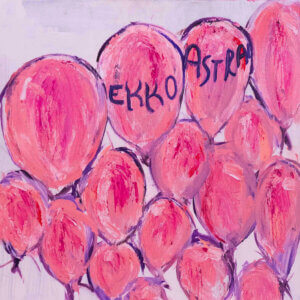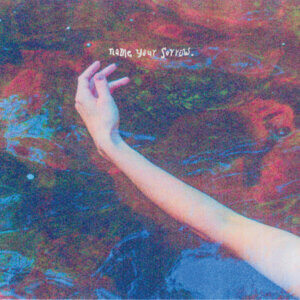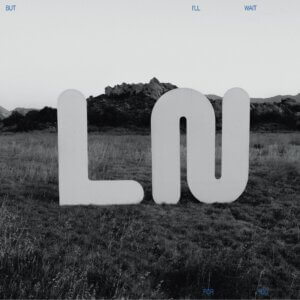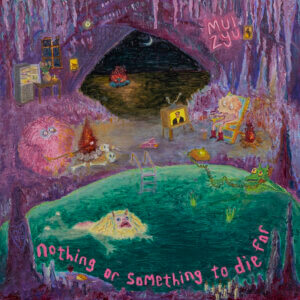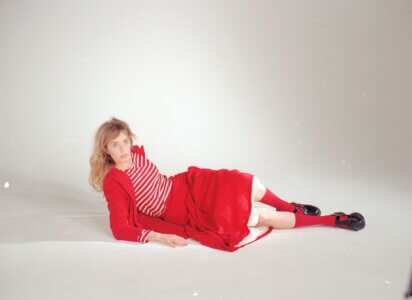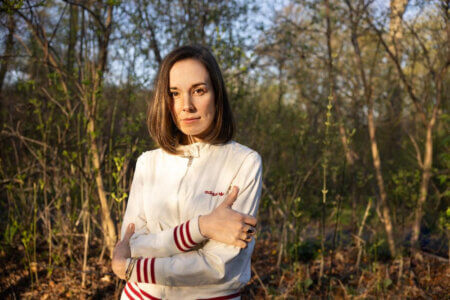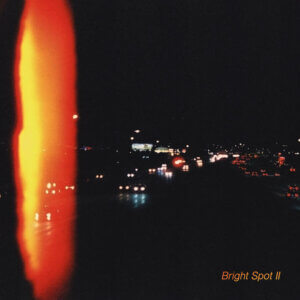Crocodiles Interview
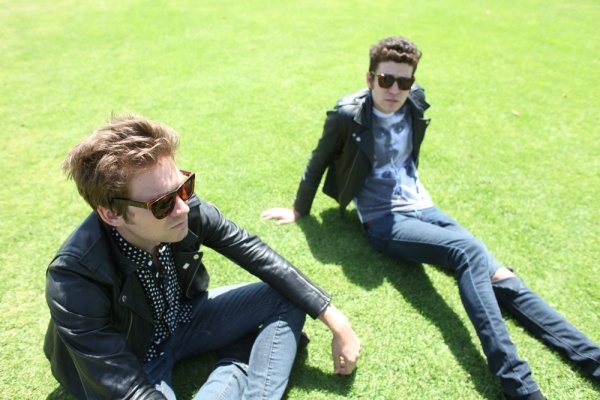
Northern Transmissions sits down with Brandon Welchez and Charlie Rowell from Crocodiles.
Charles Brownstein: You grew up in San Diego, where did you pick up your psychedelic electronic British sound?
Charlie: Well, you know San Diego had, a pretty rich like, throughout the mid 90s early 90s, throughout the 2000s, there was a big scene for kind of like, noisy, abrasive punk you know, not like, not like traditional, not Misfits or Black Flag or something you know. A more fucked up, skewed version of that kind of stuff. You know, that was really influential on us when we were growing up, because you know, that was kind of like what the older kids that we looked up to were doing you know, and bands they were going to see and stuff like that so. So there was a big audience for kind of like bigger, noisier music at one point.
CB: What was the scene like?
Brandon: When we first started Crocodiles, that was.. it was pretty hard for the first year, that we were doing Crocodiles in San Diego. I mean we got started touring right away. I mean we like, we self-financed the 7-inch so we could get on the road you know right away. And that was when we were just a two-piece. It was easy to tour. And yeah it was, it was notable that we would play in San Diego, bottom of the bill, clear the room. And then in New York, two or 300 people would come you know and, kind of frustrating but it gives you something…. You know now we can go and sell out a club in San Diego and it’s, you know. Sometimes you gotta wonder, where you assholes were a couple years ago you know.
CB: Do you get tired of having your music compared to the same certain bands all the time?
Charlie: If you’re going to try and describe a band to readers, the easiest route is to compare it to something they may have heard before. Uh, I understand that. I think that it’s a bit simplistic though I mean, you know I know hundreds of musicians, I don’t think I know one person who bases what they know on one or two bands. It’s usually like 50, 50 things or more. Or usually it’s what they like. Everything they’ve got into since they started liking music, or everything not general. And you know it’s, I think journalists really simplify things and really dumb it down. But at the end of the day I think that really reflects more on the journalists you know, and if an intelligent reader, you know, listens to one of these bands, I think it’s easy for the intelligent reader to go, yeah okay I hear a bit of that. But it’s not really fair to say, this is like our generations’ version of that.
CB: What was it like working with James Ford and recording the album Sleep Forever?
Brandon: We had a bit of a budget for that record, and we had a manager and all this kind of stuff.And I think James’ manager and our manager are friends. And I think James’ manager mentioned to our manager in passing that he was a fan of our first record. So they started talking about it.We really didn’t know him at the time.
Charlie: James Ford’s manager came through San Diego, so we had a meeting with him. We had sent him a few demos you know just to see if we, if we were coming from similar places and you know it was great. To hear the song Stoned to Death, it’s the second song on Sleep Forever. And he said, he said it reminded him of the Monks, which, like after a year and a half of hearing, all we listen to was Juice and Mary Jane, it was nice you know because we were huge Monks fans and it was really cool to hear somebody say, oh I can hear the Monks influence you know. This is what we can do to help pull some of this cool stuff out of that. Yeah, he just seemed, he was excited, you know, because he gets hired to make hit records, you know what I mean? By big labels. And this was a pet project for him because there was no pressure from anybody to get a hit single. There was no pressure for it have any kind of production value, it didn’t have to be radio friendly, it didn’t have to be anything you know so, he was excited to fuck around with some tape loops, make a lot of noise and kind of experiment a little because I don’t think he usually gets that opportunity although he loves that kind of stuff you know what I mean.
Brandon: He was excited, and we were excited just to have someone around that uh, who just had more knowledge you know like, we’re not, we’re not the most, we don’t have that much technical know-how. We know the sound we want in our head, we can only kind of describe it. We would need, really an engineer, someone who’s talented with the equipment to really pull that out. He’s, James, he was really, really connected on that level. We could say something really obtuse about what we wanted something to sound like, and he would fuck around and say, is this what you mean? Oh close but a little cloudier. He would fuck around with it and, eventually, you know quickly he would get it and it would work well.
CB: What about recording in Joshua Tree? was that a pretty cool place?
Charlie: Yeah, yeah absolutely. It’s beautiful. It’s uh, you know it’s a national park, it sort of has some powder space type turned upside down aesthetic to it. Yeah it was really cool. It was surreal because it was just 10 days of recording. So it was basically like, every day was like a lot of diligent working how, you know, we had to get a song done a day, you know, and then also cram in lots of drinking, drugging and tourist stuff you know. So every day was pretty full on. It was like, recording, recording, and then go out, see the sights, come back, record until late, late into the night you know. And then even then I think we were just buzzing from the whole environment and we’d go sit on the roof and stare at the sky. Completely mashed, you know. But it was great.
Brandon: Pretty isolated, you know. I mean when he says touristy stuff he means nature around us like, so there was no distractions like the cool street that has all the cool bars and shops, there was none of that. You know, it was like record or go hang out outside in nature and shoot BB guns or climb on rocks and go look at jackrabbits.
Charlie: Yeah our world was like, the house because the house that we recorded in was wall-to-wall musical equipment. So like, our house was like the house with all of our musical equipment.
Brandon: We were living in it.
Charlie: And, this vast landscape of just nothingness, but beautiful nothingness.
CB: Do you guys have another record in the can?
Charlie: Yeah it needs to be mixed and mastered but it’s all done being recorded. We just, we finished it two weeks ago, three weeks ago.
CB: That’s exciting. Looking forward to hearing it.
Charlie: Yeah, it’s a little, it’s like a little infant right now you know. It’s a little child. Need to have some stuff chiseled to – yeah.
Charlie: It’s like a little secret.
CB: A secret – we can’t talk about it too much. I was going to say, production-wise, you can tell me but then you’ll have to kill me (everyone laughing). You’re not allowed out with that, we have to confiscate your recording device (laughter again).
Charlie: We’re just going to have to go back and record over those parts.
CB: Thanks very much for doing this, hope you guys have a great show.
Brandon: Thank you
Charlie: Thanks
Click here to listen to interview
Latest Reviews
Tracks
Advertisement
Looking for something new to listen to?
Sign up to our all-new newsletter for top-notch reviews, news, videos and playlists.
